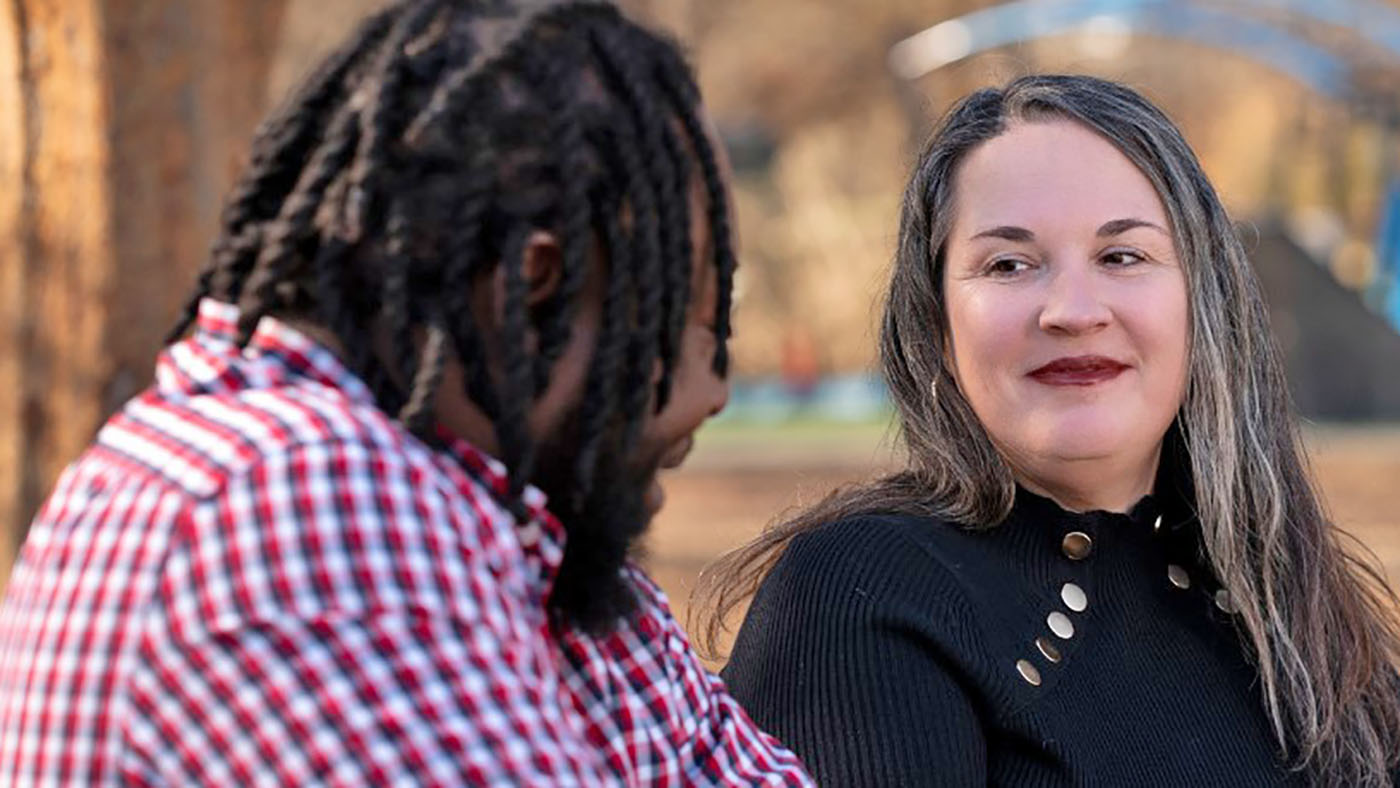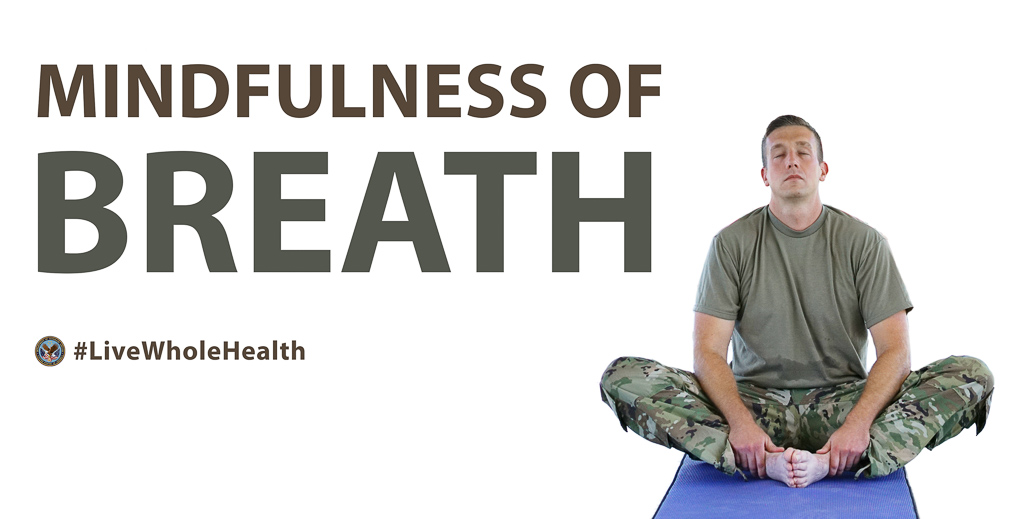Did you know that VA researchers invented the first clinically successful implantable cardiac pacemaker, helping many patients prevent potentially life-threatening complications from irregular heartbeats?
Or that they developed the nicotine patch and other therapies to help smokers quit?
“InnoVAtion to Implementation.”
Many Veterans gained hope for greater mobility when VA researchers invented a wheelchair that allows users to crank up the push rims to a standing position, providing them with increased functionality and independence.
It’s a remarkable history of accomplishments which we celebrate this Research Week.
Research Week is an annual event that celebrates the accomplishments of the VA Research Program and recognizes the researchers, Veterans and partners who support the program. For more than 90 years, VA research has been improving the lives of Veterans and all Americans through health care discovery and innovation.
VA research is unique because of its focus on medical issues that affect Veterans. It is part of an integrated health care system with a state‐of‐the‐art electronic health record and has come to be viewed as a model for superior bench‐to‐bedside research.
The groundbreaking achievements of VA investigators—more than 60 percent of whom also provide direct patient care—have resulted in three Nobel prizes, seven Lasker awards, and numerous other distinctions.
The theme for this year is “InnoVAtion to Implementation.”
Research Week is celebrated all over the country at VA medical centers. VA facilities plan open houses or other activities to commemorate the week. Some plan research presentations, research displays or slide shows, and others will hold Veteran appreciation days, featuring VA researchers and local officials, as well as personal testimonials by Veterans participating in VA research studies.
The purpose of VA Research Week is to recognize Veterans for their participation in research studies and to provide an opportunity for VA investigators and administrators to present findings from their discoveries and innovations that have led to advancements in the health care for Veterans and improved upon existing medical knowledge. We recognize achievements in the following areas.
How research translates to patient care
VA researchers study a wide range of health topics from cancer, diabetes, women’s health and mental health to prosthetics and post‐traumatic stress disorder. Research Week is the premier event for researchers to present their discoveries on these topics and to show how they translate research to patient care and services for Veterans.
Here’s a short list of substantial research launches and outcomes in 2017 alone:
- A major study, conducted under the auspices of the Chronic Effects of Neurotrauma Consortium, on the long-term effects of mild traumatic brain injury.
- $81 million in new research on non-drug treatment of pain for military personnel and Veterans.
- A physical-environment checklist used in VA psychiatry units led to a sharp decline in inpatient suicides.
- A study showing that prolonged exposure therapy delivered directly into patients’ homes via telehealth could “dramatically increase the reach of this evidence-based therapy for PTSD without diminishing its effectiveness.”
- Significant progress in restoring a natural sense of touch for those who use prosthetic hands.
- Advances in brain-computer technology that now allows fast, accurate typing by people with paralysis.
Every year, Veterans from all over the country participate in research studies to help improve the lives of other Veterans. During Research Week, we honor Veterans and formally thank them for the vital role they play in supporting and contributing to the VA Research Program.
VA research depends on its collaborations and partnerships with academic affiliates, industry partners, nonprofit organizations, outside organizations, and Veterans service organizations to deliver high‐quality results. For Research Week, VA highlights these partnerships and the successful research studies that have been made possible through these collaborations.
VA research fosters dynamic collaborations with academia, other federal agencies, nonprofit organizations and private industry—thus furthering the program’s impact on the health of Veterans and the nation.
Topics in this story
More Stories
You don’t need to know complicated terms or lots of data to talk to someone about suicide. You just have to show concern.
VA’s Office of Connected Care helps Veterans in rural areas receive care through telehealth and other virtual tools.
Discover the power of your breath! Explore how mindful breathing can bring peace, ease your mind and enhance clarity in this week's #LiveWholeHealth video.







I have a pacemaker and interstim plus a right hip replacement and have edema in both legs. I have been treated for everything that my 73 years have dealt me. I get medical help by the VA But they will not accept my claims for my cardio heat failure or my Hypertention , I have agent orange exposure My 12 months in Vietnam,
Please note that veterans are using their electrical/electronics training to research outside of the medical field. I for one am preparing to test a patented invention that uses ELF or Extremely Low Frequency radiation to enhance solar panels by up to 25%. If successful, it will require 1000s of young men and women to treat billions of panels in ware houses, up on roof-tops, and out on miles of solar farms and lakes.
the va needs to get started on imatinib possibly curing diabetes
All we want is our medications, better cancer treatments that are out there already. Recognition when we find ourselves in a new part of the country trying to find cures for what is killing us. Prescription help when we need medicines. The new medicines that are available now.Travel pay or any kind of help when we go on our own after waiting on VA for five months or more on a cancer treatment. All I see is the money going to private contractors that at times do not help our illnesses right now. How about just using what we have here and now. I don’t want to see better wheel chairs, I just want a wheel chair that works and is not 12 years old.
SB
I’m visual impaired
Hello
Seeking info if the VA is doing research on Cuff-less heart monitoring devices. I’m very interested in obtaining such a device
Thank You
This is the most informative site I have browsed in years, keep up the good work.
I recently read that the VA invests some 1.9 Billion US tax dollars into research every year now, but the VA only gets less than 1/2 of a million $$ in royalties. How many Doctors and/or Specialists in these research projects walk away with millions in benefits for their part in this research?
Is the VA involved with a newly FDA approved procedure for neuroendocrine tumors medication known as LU-177 for treatment for GEP-NETS? I am very interested in this application as I will not use radiation or chemo.I showed the paper to an outside oncologist and he barely looked at it and set it down, I feel this is the best approach…. Anyone know the costs involved with this treatment, If I read the paper correctly it can be short time run……. I’m getting tired of butt injections, they hurt big time!
It has been recommended that I use the Alpha-Stim Device. They have them all over Texas but not in my particular VA. How can I get one? They have them in so many places nearby.
I’m glad to hear of these improvements
Has anything been done for examining the prostate? The newer procedure is using an MRI to scan the prostate instead of the old conventional needle biopsy.(I think worded it correctly) Also there is an MRI guided procedure.
I believe those of us that are still here, it will just be a matter of time before we will need an exam since we were exposed
to Agent Orange.
Ed G
USMC
RVN 1969 C 1/9
.
I understand that military medical records can now be shared with the Veterans Administration and vice versa.
Civilian doctors in many parts of the U. S. use a medical records system known as “MyChart”. There may be others.
Are there plans in the works whereby military and VA medical records could be shared to MyChart and any other civilian medical records systems and vice versa?
LOL, of course they are. Several years ago I applied for VA disability compensation and the investigating doctor returned the decision to not grant it, but in his write-up there was information to a diagnosis while I was sill in the Navy which I was not aware of, so, the only place this could have been found was in my service health record, and as I said, I was not aware of being diagnosed with the condition, (I remember the appointments with the shrink), but never told and never followed up by either the Navy or the VA, it was logged as treatment available via the VA, but it is a condition to which I have no idea what the symptoms are or if/when to seek treatment, and, of course, being out of the Navy for years I doubt if the VA would ever consider approaching the issue. But, get this, a condition the patient was never advised of, no follow up and no counselling recommended, just hidden from everyone, except the “investigator”, when I requested a copy of my service records this is all I got and no health records were included. I have no idea how this may have effected my life.
I notice the 42 topics at the top right does not specifically include one on Agent Orange (AO) and other chemical exposure by veterans in many regions in the world. One area of specific interest to me is Okinawa.
Two Marines in my squad in 1960 – 1961 on Okinawa have developed symptoms of AO exposure. Neither of them served in Vietnam. One died four years ago. His doctor stated his symptoms were identical to AO exposure. His filed claim was denied. The other is in the process of filing his claim.
I recall reading that Okinawa has a very large AO dumping ground on base, something abut the US Air Force being involved, maybe Okinawa is another Camp Lejeune?
The VA has always been a leader in research. I would urge a greater public relations campaign on this topic.
Richard Romley
USMC
Vietnam 1968-1969
Wounded April 7, 1969
A Doctor L.S. (redacted) changed the prescription for the lubricants for my self-catheterization, changing to an inferior lubricant, which caused irreparable and inoperable scarring damage to my entire urethra, where I had to get help from Oregon Senator Wyden to get the original lubricant (Sergilube) prescription restored.
So what happened to her? She was transferred to the Tacoma, WA VA facility where she is the Evaluating Doctor for veterans applying for VA Disability. I can think of no worse person to have that job. She is uncaring, unkind, and extremely stubborn. Does the VA really want such a person in such an important position to judge the VA Disability applications of Veterans?
How can I get involved in testing new medication and treatment plans?
My brother is in a VA nursing home following a major stroke that has left his left side paralyzed, I hear that stem cell treatment has helped bring these patients back to a more normalcy of life. Is this treatment available to veterans?
Mr. Mauricio Cerrillo